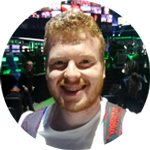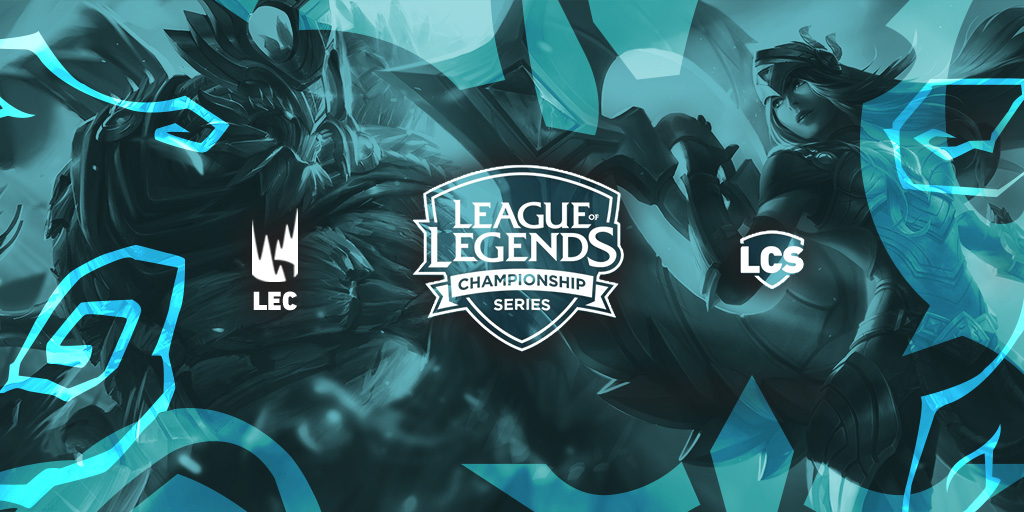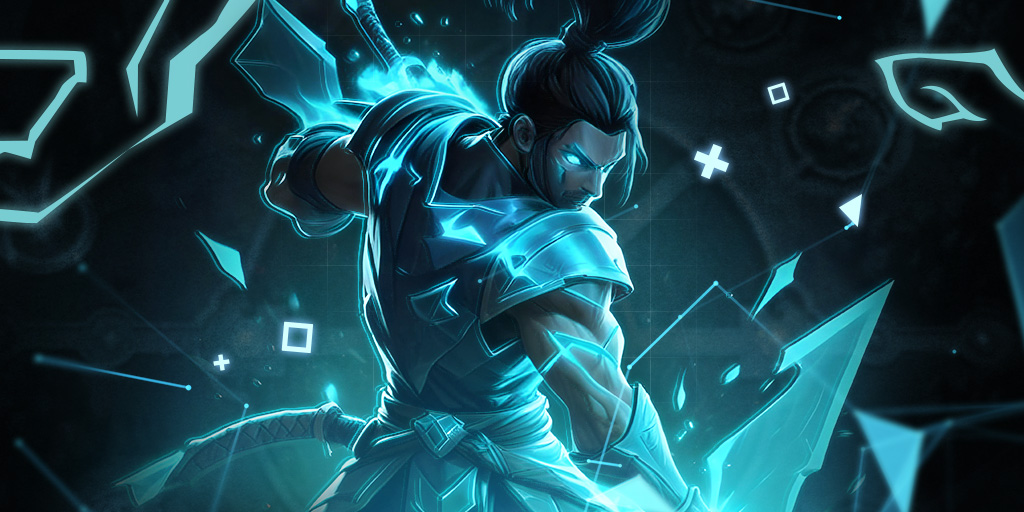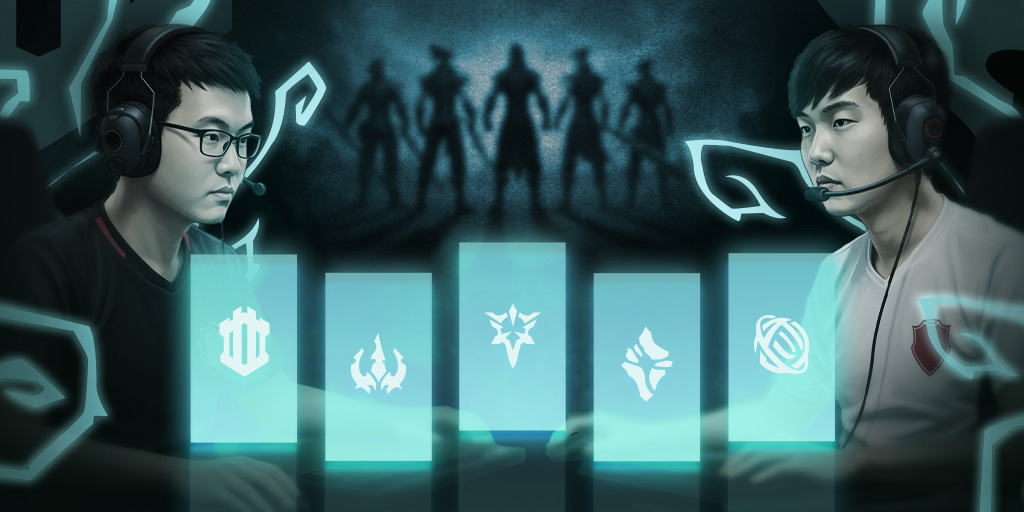Representing North America and Europe. the LCS and LEC are the the oldest franchised esports leagues in the world. Read on to find out more about the LCS and LEC.
In October 2009, Riot Games launched League of Legends (LoL), a PC game which would fundamentally change the industry and become one of the most popular games on the planet. A lot of that success is due to the substantial interest in the competitive-gaming aspect of the game.
The Multiplayer Online Battle Arena (MOBA) became a trail blazer for the esports industry and, to this day, still attracts tens of millions of viewers every year for the LoL World Championships - the game’s largest tournament with the best teams from all around the globe competing.
The first two seasons of LoL as an esport featured a host of different tournaments held by different third parties before Riot ended the year with Words. However, in 2013 the game’s publisher decided to take a more hands-on approach with LoL’s esports scene by introducing its own domestic leagues, the LoL Championship Series (LCS) with North American and European versions though the latter would later separate into its own brand the LoL European Championship (LEC).
Both leagues are still going to this day with 10 teams in each region across a two-part season separated into a Spring Split and Summer Split. The best teams in the latter then go on to Worlds for a chance at lifting one of the most coveted esport prizes, the Summoner’s Cup.
The history of the LCS
The foundation for the NA LCS was built upon a rivalry between two teams which had ignited years before the league even existed.
Counter Logic Gaming (CLG), formed in 2010, is the oldest organisation competing in LoL and was founded by former top-laner George "HotshotGG" Georgallidis. However, he didn’t get along well with one of his short-term teammates Andy “Reginald” Dinh who decided to leave and, with help from his brother Dan who helped birth CLG, create an organisation of his own: Team SoloMid (TSM) named after his own community-based website SoloMid.net.
The origins for TSM and CLG can be traced back to the early beginnings of competitive League of Legends.
The rivalry has remained heated, even after both teams’ founders stepped down from playing. TSM quickly became one of the most popular brands in the scene after winning the inaugural Spring Split in 2013 and have since accumulated the highest tally of six domestic titles in total. However, in Summer 2015 CLG finally had their moment. The squad took down TSM in-front of a passionate Madison Square Garden crowd with a dominant 3-0 victory to claim its first-ever LCS title and some much-needed bragging rights.
And you can’t talk about LCS success without Cloud9 who set the LCS alight after gaining promotion ahead of the first-ever Summer Split. The now-legendary team dominated in its debut split, recording the LCS’s longest ever win-streak (13 games), most victories in an LCS split (25) and finished the split as champions with a sensational 91% win-rate and 30-3 record.
In 2018, Riot brought franchising to the league with 10 organisations being offered permanent places in the LCS with no chance of relegation following a lengthy application process. Some new organisations like 100 Thieves quickly won over fans while others such as shooting-game aficionados OpTic Gaming failed to do so and consequently sold their spot.
Franchising allowed Team Liquid, formerly Team Curse, to invest heavily with their strong financial backing and finally end the organisation’s ironic ‘fourth-place curse’ to become, poetically, the fourth organisation to ever win an LCS title.
There is a substantial amount of money being thrown around in the NA scene with some players reportedly earning over $1million yearly yet, the region has struggled internationally. Cloud9 is the only NA org to ever make it past the Worlds Group Stages and recorded its best finish by reaching the semi-finals in 2018. Meanwhile, Team Liquid shocked the world by reaching the final of the Mid Season Invitational (MSI), another international event, only to lose to European rivals G2 Esports in the fastest international best-of-five in LoL history.
A seeming lack of competition and domestic talent is holding the region back, there’s certainly a lot of work to be done.
The history of the LEC
Along with the beginning of the NA LCS in 2013 was its European sister the EU LCS, now known as the LEC. The league was instantly dominated by one of the most prestigious organisations in esports history, Fnatic who had already won the first-ever LoL World Championship two-years prior and went on to win the first three EU LCS splits.
That streak was ended in Summer 2014 by Alliance, with legendary mid-laner Henrik "Froggen" Hansen, which to this day is the only organisation to win the European title outside of Fnatic and G2. Alliance had looked extremely strong but came to a tragic end after a disappointing Worlds performance with a shock loss to Brazilian team KaBuM! e-Sports a low-point in a failed attempt to make it out of Groups.
Fnatic then returned to dominating the league by winning both 2015 splits and even became the first LCS team to go undefeated in the regular season having finished the Summer Split with an incredible 18-0 record. That squad is still remembered as one of the greatest in European history as it defeated Origen, the organisation of legendary Fnatic mid-laner Enrique "xPeke" Cedeño Martínez, in a thrilling five-game final before both organisations performed admirably to reach the Worlds semi-finals in China where Riot showcased a massive CGI Elder Dragon and launched the digital group 'K/DA'.
However, things would change massively in 2016 with the promotion of G2 - the organisation of former mid-laner and polarising personality Carlos "Ocelote" Rodríguez Santiago who infamously had a rivalry with both xPeke and Fnatic.
G2 dominated and went on to win the next four EU LCS splits though surprisingly struggled on the international stage and failed to escape the Worlds Group Stages in both 2016 and 2017.
The next year was a rebuilding season for G2 with the squad only just managing to qualify for Worlds this time around while Fnatic returned to the top spot. And it was at that tournament that Europe would shock the world with a number of upsets against the heavily favoured South Korean and Chinese teams.
Spurred on by Misfits incredible underdog performance against legendary organisation SK Telecom T1 the year prior, Europe sprung to life as G2 and Fnatic escaped groups while Team Vitality caused major upsets by defeating reigning World Champions Gen.G (formerly Samsung Galaxy) as well as MSI champions and tournament favourites Royal Never Give Up (RNG).
From there, G2 caused an even bigger upset with a superb five-game victory over RNG in the quarter-finals while Fnatic became the first Western team since themselves in Season 1 to reach the Worlds final. Yet, both EU teams were decimated 3-0 by China’s Invictus Gaming.
There was still a lot of work to be done but Europe, in its first year as the rebranded LEC with its own answer to the LCS’ franchising model, had separated themselves from North America and proved their own international prestige.
That led to 2019 as G2 recorded a historic year with an unorthodox change sending the organisation’s star-player Luka "Perkz" Perković to the bot-lane to make room for the marquee signing of mid-laner Rasmus “Caps” Winther from Fnatic.
The move paid off massively as G2’s unique play-style earned them Europe’s first MSI title and then took them to the Worlds final too only for the squad to meet the same fate as Fnatic, losing 3-0 to China’s FunPlus Phoenix.
After winning the 2020 LEC Spring Split, G2 has matched Fnatic’s seven domestic title tally but Worlds success is what both organisations truly crave.



